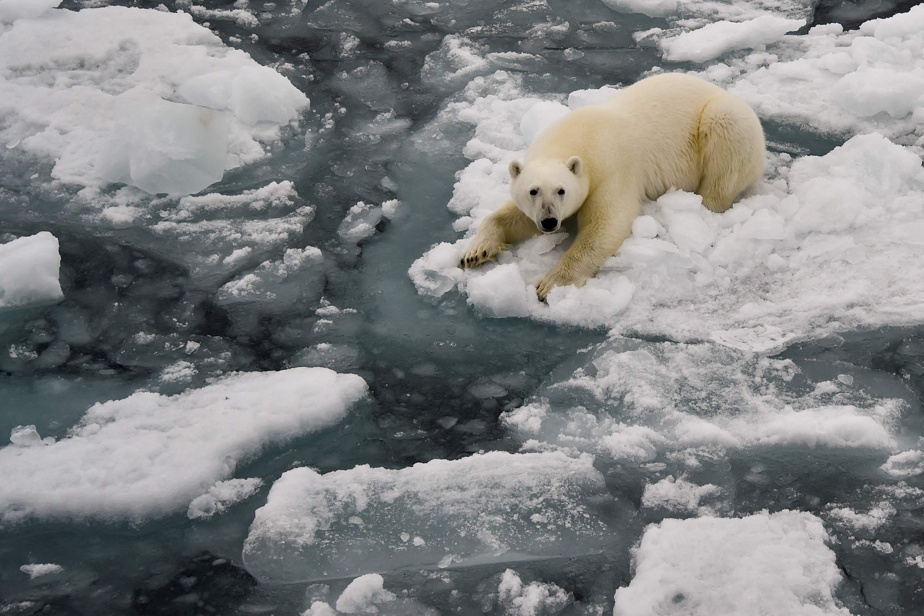(Paris) Limiting global warming to well below 2 degrees compared to the pre-industrial era is a necessity for the future of the planet… but also to prevent polar bears from disappearing from Hudson Bay in Canada, shows a study published Thursday.
Climate change has already significantly increased the number of days when sea ice is not thick enough for polar bears to hunt, forcing them to live longer periods without their main food source.
In this new study, published in the journal Communications Earth and Environment, researchers examined the impact of different levels of global warming on the thickness of summer ice in Hudson Bay and, therefore, on the fate of polar bears, endangered species.
The result is that if the planet’s average temperature rose 2°C above pre-industrial levels (the limit set by the Paris Agreement adopted in 2015), the ice-free period would be too long for many bears, particularly those in southern Hudson Bay, which depend on the sea ice to hunt their preferred prey, ringed and bearded seals, and to breed.
According to the researchers’ modeling, at 2°C, the ice-free period in the region could exceed six months. However, historically, when their population was considered in a healthy state, bears in the region fasted for around four months.
“It is unlikely that these bears will survive” with such warming, the lead author of the study, Julienne Stroeve, an Arctic climatologist at the University of Manitoba, told AFP, estimating that they could disappear. by the middle of this century.
Hudson Bay, in northeastern Canada, is one of the emblematic places to observe the evolution of polar bears. However, it is also one of the places that is most strongly affected by the effects of global warming.
In the Arctic, this phenomenon is two to four times faster than elsewhere in the world, which is already affecting the number of polar bears.
In December 2022, a Canadian government study had already shown a rapid decline in their population in Hudson Bay, to 618 compared to 842 in 2016.
Hudson Bay polar bears are “a very iconic species of the North. It doesn’t cover the entire Arctic Ocean, but it does sound something of a “wake-up call” that could foreshadow the fate of all Arctic bears, Stroeve warns.




